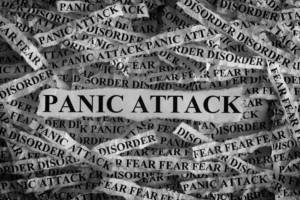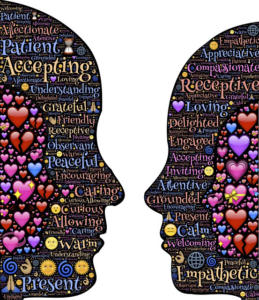PLEASE NOTE: I am now offering virtual sessions online until further notice. The importance of staying connected and well during uncertain times cannot be understated. Click HERE to read more about working together during the COVID-19 outbreak.
For Men For women about me Addiction empathic counseling and psychotherapyPLEASE NOTE: I am now offering virtual sessions online until further notice. The importance of staying connected and well during uncertain times cannot be understated. Click HERE to read about working together during the COVID-19 outbreak.
At the core of happiness is the ability to feel comfortable in your own skin. By the time you’ve gotten to this website, you’ve probably experienced a fair amount of self-doubt and self-criticism. Having low self-esteem can make you feel like you’re unworthy, incapable and incompetent. It can affect your relationships, your work, your mood-nearly every aspect of your life. Sound Familiar?
Hi, I’m Lindsay. I’m a psychotherapist, but you may also call me a self-esteem igniter, failed-relationship investigator, expert problem-solver or a specialist in connection.
Negative self-talk can get in the way of you leading the happy and fulfilling life you deserve. Find a way to stop beating yourself up and release yourself from self-doubt. This can help you realize your full potential. Together, we can explore what it means to accept yourself more freely and deeply, while working towards building healthier relationships and feeling better about yourself so you can live a more satisfying and enjoyable life.
I know from my own personal journey, and from helping men and women across the country, that with some courage (you made it here) and help from a therapist, anyone can feel what it’s like to feel truly connected and accepted.
I believe learning to let yourself off the hook and having a good sense of humor can change the world. If you’re struggling with figuring out relationships, yes, even that one with yourself, then schedule a free consultation today.
Hi, I’m Lindsay. I’m a psychotherapist, but you may also call me a self-esteem igniter, failed-relationship investigator, expert problem-solver or a specialist in connection.
Negative self-talk can get in the way of you leading the happy and fulfilling life you deserve. Find a way to stop beating yourself up and release yourself from self-doubt. This can help you realize your full potential. Together, we can explore what it means to accept yourself more freely and deeply, while working towards building healthier relationships and feeling better about yourself so you can live a more satisfying and enjoyable life.
I know from my own personal journey, and from helping men and women across the country, that with some courage (you made it here) and help from a therapist, anyone can feel what it’s like to feel truly connected and accepted.
I believe learning to let yourself off the hook and having a good sense of humor can change the world. If you’re struggling with figuring out relationships, yes, even that one with yourself, then schedule a free consultation today.
 Recent Blog Posts
Recent Blog Posts
Recent Blog Posts
Recent Blog Posts
 February 13, 2017
Lindsay Melka
February 13, 2017
Lindsay Melka
Managing a Panic Attack
Should I Avoid Thinking About my Panic Attack?
Is it possible to manage a panic attack? Yes, but maybe not the way you think. If you’ve never suffered the terrible experience of a panic attack you may think trying to not think about it is the answer. This can typically lead to a worsening of symptoms, making one’s anxiety even stronger. So what do you do?
First of all, how do you even know if you’re having a panic attack? I’d bet most people who’ve experienced them would say “how could you not!?”
The hallmark of a panic attack or panic disorder is the experience of sudden and sometimes repeated bouts of extreme fear that last several minutes or more. It can feel like an eternity, although most don’t last more than ten minutes. They can, however, keep happening; making it feel like the panic has completely taken control. The attacks are characterized by heightened feelings of terror, disaster or losing control, even when there is no immediate threat.
Scientifically speaking, a panic disorder is a psychiatric condition characterized by repeated and sudden attacks of intense fear and anxiety. Many people suffering a panic attack describe their experiences in similar ways. Typical symptoms include:
- Pounding Heart
- Sweating
- Trembling or Shaking
- Feeling Faint
- Fear of dying
- Fear of going crazy
- Fear of losing control
- Fear that one is having a heart attack
While researchers have not determined a specific cause of panic disorder, many doctors believe it is a combination of genetic and environmental factors. In addition to biological factors, researchers are also investigating how stress may play a role. It is not uncommon for a major life event, even a pleasant one, to trigger a panic attack. Events like birth of a child, planning a wedding, job stress, buying a new house, changing jobs, an accident, divorce or death of a loved one may cause one to have an attack-even if they have never experienced one before. While some people can identify their triggers for a panic attack, they often, unfortunately, come on suddenly. One of the biggest sources of panic is fear of having another one!
So what can you do if you feel you are experiencing a panic attack?
 As with most mental health issues, panic disorder is typically treated by psychotherapy, medication or a combination of both. If one is unable to get outside resources quickly, there are coping skills you can practice and utilize on your own should you find yourself unable to calm yourself down. These are in no particular order and some may work better than others. Find what works best for you.
As with most mental health issues, panic disorder is typically treated by psychotherapy, medication or a combination of both. If one is unable to get outside resources quickly, there are coping skills you can practice and utilize on your own should you find yourself unable to calm yourself down. These are in no particular order and some may work better than others. Find what works best for you.
- Acknowledge that you are having a panic attack. Just acknowledge it. Sometimes it is helpful to talk to yourself in a calming manner. “I’m fine. I’m experiencing a panic attack. I am not in danger”.
- To take step 1 a little further, acknowledge that you are safe. Remind yourself of this.
- Practice inhaling from your diaphragm and exhaling through your nose. This will help slow your breath and your heart rate.
- Hold ice. This can divert your attention away from the panic attack.
- Smell soothing scents. Lavender and Bergamot are known to be calming.
- Go for a run. Jump in place. Anything that gets your heart rate up. This can create a healthy association to your elevated heart.
- Remind yourself that this will pass. Feelings are not facts. Anxiety will diminish in time.
- Look up “Yoga, legs up the wall pose”. This pose supports blood flow in the chest and stomach, helping to reduce your heart rate.
- Walk outside
- Engage in conversation. Distract yourself. Participating in a conversation makes it more difficult to focus on the panic.
- Listen to soothing music.
- Download a mindfulness meditation, or better yet find one free on YouTube.
- Engage your five senses. Find 5 things you can see, four things you can hear, three things you can feel, two things you can smell and one thing you can taste.
- Again, breathe.
If you find yourself continuing to struggle with panic attacks, know that you are not alone. Millions of people suffer from them every day. More importantly, millions of people get through them every day. Practicing coping skills, receiving psychotherapy and or taking medication can drastically reduce or completely end your struggle with panic attacks. Find out what works best for you. If you’ve found methods that have helped get you through panic attacks, methods that I have not mentioned here, I’d love to hear about them! Please feel free to share your comments in the space below.

Lindsay Melka, LPC
Empathic Counseling and Therapy
If you connected with this post and would like to speak with me please call 720-295-5490 or contact me here.
 January 17, 2017
Lindsay Melka
January 17, 2017
Lindsay Melka
Giving and Receiving Validation Improves our Relationships
What is Validation?
 Why is it important to feel validated? Working as a therapist one often hears “I just want to feel validated”. What does it mean not to feel validated? How does validation not only impact our relationships, but our self-worth as well? Why should we validate others?
Why is it important to feel validated? Working as a therapist one often hears “I just want to feel validated”. What does it mean not to feel validated? How does validation not only impact our relationships, but our self-worth as well? Why should we validate others?
Let’s start with a simple explanation of the meaning of validation. It is not that you agree with the other person. It’s not that you don’t share your own point of view. Simply put, validation is when you’ve listened and acknowledged what the other person has to say.
Most people feel better having a difficult or emotionally charged conversation when they feel heard. Just being listened to can feel really good. Without validation, people feel unheard, so they work extra hard to convince you of the importance of their needs. We’ve all experienced at some time or another that feeling of desperation to be heard. We may get loud, pouty, or angry. Our heart rate starts to rise and our ability to hear gets cloudy.
To effectively communicate, you must start with the assumption that both you and the other person have equally valid needs. Most of the time, they are not the same needs, but both needs are valid. No one is wrong and no one is right. It is an equal playing field and is not about winning or losing. It is about being and feeling heard.
Validating Others
Validation is about finding the piece of truth in another person’s perspective or situation. It is about looking for even a morsel of fact. Validation means that you acknowledge that a person’s emotions, thoughts and behaviors have causes and are therefore understandable. More importantly, validation is not validating something that is invalid, and it does not infer that you are agreeing with the other person. People seem to get tripped up by this the most. The whole idea of being interpersonally effective has nothing to do with giving in and letting someone else be right for the sake of having a peaceful conversation. Again, it is about being heard or showing someone else that they are being heard. Each person is entitled to want and feel what they do. Neither person has more power. You each just have different-yet sensible and legitimate experiences and desires.
How can we validate one another?
1. The first thing we can do is practice active listening. This starts with just paying attention to what the other person is saying. Look interested, listen, observe. Nod your head, make eye contact. Focus on what the other person may be feeling, experiencing. Sometimes even a slight look of concern or a smile can let the other person know you are there, you are present.
2. Reflect back on what you heard or observed, making sure you actually understood what the other person is saying. Make sure not to be critical or judgmental in your tone. And definitely don’t be sarcastic! It’s important to mention that people often struggle with reflecting back without sounding like they’re just parroting the other person. This can come across as condescending and rude.
3. Try to notice what the other person is feeling or thinking. What does their body language look like? Remember, even if you don’t approve of the other person’s behavior, you can try to see where they’re coming from. Chances are, you know this person enough to get an idea of why their argument makes sense to them.
4. Be sensitive to what the person is not saying. Don’t try to read their mind. Really pay attention to them.
5. Acknowledge the validity of what they are saying. Make it a point to see that the other person’s thoughts, actions or feelings are valid given the current reality and facts.
6. Show that you are equals. Again, you are no better and no worse.
Why do we need to validate one another? Why is it so important?
It improves our relationships by showing that we care and want our healthy relationships to continue. It evens out the paying field. And surprisingly and more importantly…when we listen and validate, it makes us feel better about ourselves. There is a feeling of maturity and relief that can come with listening without interruption. Letting someone share their thoughts and feelings without the need to butt in can teach us a lot about ourselves and our communication patterns. It teaches us how to be present and promotes the practice of being mindful. It makes us closer and can help heal wounded relationships.
No one likes to feel invalidated because it hurts. It’s a lose lose for both parties. Although it may feel like a win for one, in the long run, it only creates more distance. Successful relationships are those where both partners feel comfortable sharing who they are and what they believe in. When you learn how to validate one another, you can begin to create safety and trust and develop an even deeper kind of intimacy.

Lindsay Melka, LPC
Empathic Counseling and Therapy
If you connected with this post and would like to speak with me please call 720-295-5490 or contact me here.
